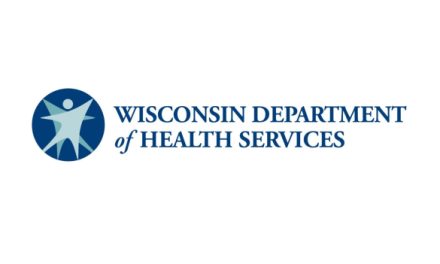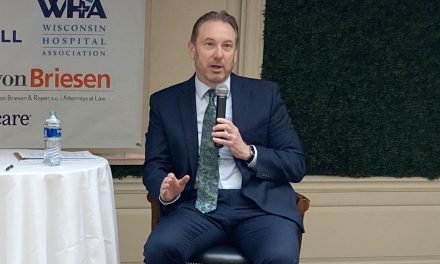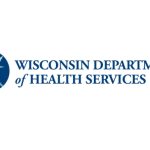
MCW awarded $2.7 million grant to advance the understanding and measurement of outcomes in children with chronic disease
The Medical College of Wisconsin (MCW) has been awarded a four-year, $2.7 million grant by the National Institutes of Health National Institute of Arthritis and Musculoskeletal and Skin Diseases to support the Midwest Child Patient Reported Outcomes Consortium which is designed to advance the understanding and measurement of outcomes in children with chronic disease for use in both clinical care and research so as to optimize the well-being and functioning of affected children.
“Our objective is to better understand how diseases like sickle cell disease, asthma and type 1 diabetes affect quality of life in children,” explains Julie Panepinto, M.D., M.S.P.H., Professor of Pediatrics, Hematology, and Director, Center for Clinical Effectiveness Research at MCW and the Children’s Research Institute of the Children’s Hospital of Wisconsin, and lead investigator on the project. “We will place special focus on understanding how disease, family, and environmental factors, including socioeconomic factors at both the individual and community levels, affect the health and well-being of these children.”
The research will be conducted by a team of researchers from MCW and UW-Madison and will take place in two clinical settings, emergency departments and health clinics.
This NIH grant is part of a larger consortium, the Validation of Pediatric Patient-Reported Outcomes in Chronic Diseases (PEPR) Consortium, where investigators will capitalize on recent advances in the science of patient-reported outcomes to improve pediatric health and well-being by capturing the voice and experience of children and their families living with a variety of chronic diseases and conditions. The Midwest Child Patient Reported Outcomes Consortium is one of four projects being funded.
PEPR is part of three initiatives that the NIH awarded $144 million to for new grants (http://www.nih.gov/news/health/sep2015/od-28.htm) to develop new tools and measures that can be used to understand more effectively the environmental exposures from the womb through later years in a child’s life. These research projects, funded with fiscal year 2015 dollars, are designed to provide researchers with an expanded range of tools to accurately measure, record and analyze environmental exposures. Greater accuracy will help improve our understanding of how these exposures change human biology to affect child health and development. Such research will continue to inform programs aimed at developing strategies to reduce the risk of childhood illnesses and disabilities.
Environmental exposures are a leading cause of morbidity and mortality for mothers and children worldwide. These exposures encompass a number of factors, ranging from chemical and biological factors such as air pollution, pesticides and infectious diseases, to psychosocial factors such as education, stress and neglect. Exposures during crucial developmental windows, including conception and pregnancy, early childhood and puberty, can have long lasting effects.
Other researchers leading projects within the consortium include Kathryn Flynn, Associate Professor, Department of Medicine, Center for Patient Care & Outcomes Research at the Medical College of Wisconsin, Elizabeth Cox, Associate Professor, Department of Pediatrics at the University of Wisconsin-Madison, Raymond Hoffmann, Professor of Biostatistics in Pediatrics, Associate Director, Quantitative Health Sciences, Department of Pediatrics at the Medical College of Wisconsin, and Mari Palta, Professor, Department of Population Health Sciences and Department of Biostatistics & Medical Informatics at the University of Wisconsin-Madison.
About the Medical College of Wisconsin
The Medical College of Wisconsin is the state’s only private medical school and health sciences graduate school. Founded in 1893, it is dedicated to leadership and excellence in education, patient care, research and community engagement. More than 1,200 students are enrolled in MCW’s medical school and graduate school programs in Milwaukee, and 26 medical students are enrolled at MCW-Green Bay. A regional medical education campus is scheduled to open in Central Wisconsin in 2016. MCW’s School of Pharmacy will open in 2017 or 2018 with an initial class size of 60 students. A major national research center, MCW is the largest research institution in the Milwaukee metro area and second largest in Wisconsin. In FY 2013-14, faculty received approximately $154 million in external support for research, teaching, training and related purposes, of which approximately $138 million is for research. This total includes highly competitive research and training awards from the National Institutes of Health (NIH). Annually, MCW faculty direct or collaborate on more than 2,000 research studies, including clinical trials. Additionally, more than 1,350 physicians provide care in virtually every specialty of medicine for more than 425,000 patients annually.





